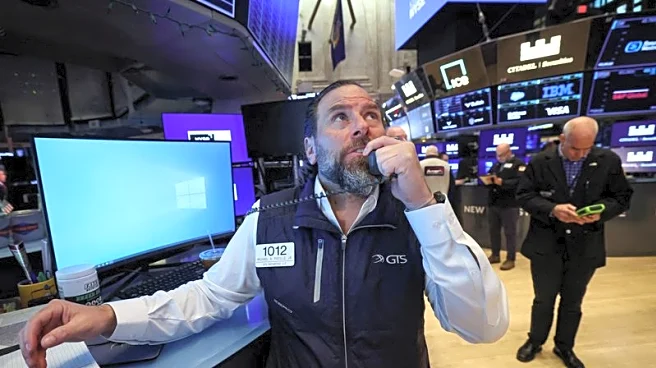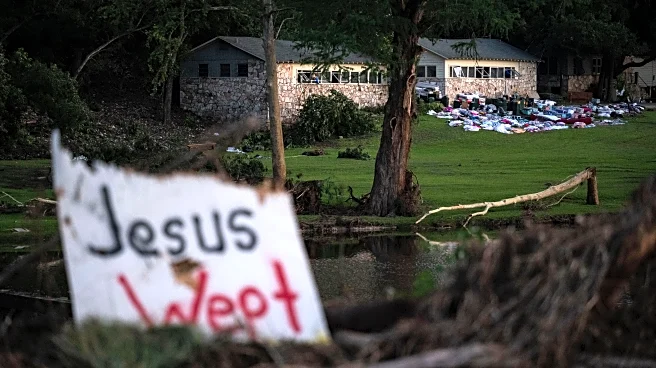What's Happening?
The Louvre Museum in Paris remains closed for a second day following a jewel heist where thieves stole crown jewels from the Apollo Gallery. The thieves used a crane-type lift to break into the museum,
smashed display cases, and escaped on motorcycles with jewelry of 'inestimable value.' The robbery occurred in broad daylight, with tourists present, but no injuries were reported. French Culture Minister Rachida Dati described the robbery as a 'professional' operation carried out in four minutes without violence.
Why It's Important?
The closure of the Louvre, one of the world's most visited museums, highlights the impact of the heist on cultural institutions and tourism. The theft of historically significant artifacts represents a cultural loss and raises concerns about the security of valuable items in museums. The incident may lead to increased scrutiny of security measures and prompt museums worldwide to reassess their protocols to prevent similar occurrences.
What's Next?
French authorities are actively investigating the heist, with efforts to locate the thieves and recover the stolen items. The museum's closure may lead to discussions on enhancing security measures and protocols for displaying valuable artifacts. The cultural community may call for international cooperation to track down the stolen jewelry, and there may be a push for improved security standards in museums.
Beyond the Headlines
The heist raises ethical and legal challenges in protecting cultural heritage. It questions the balance between accessibility and security in museums and the potential for black-market sales of stolen artifacts. The incident could lead to long-term shifts in how museums approach the display and protection of valuable items, influencing global policies on cultural preservation.










